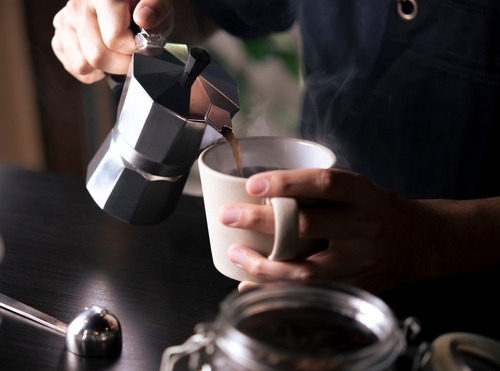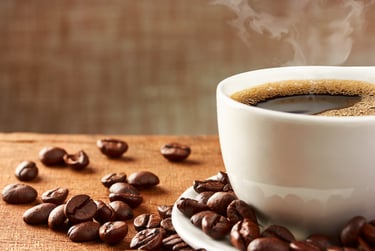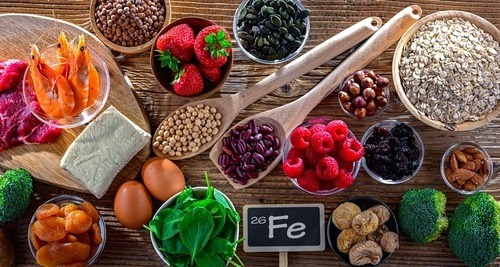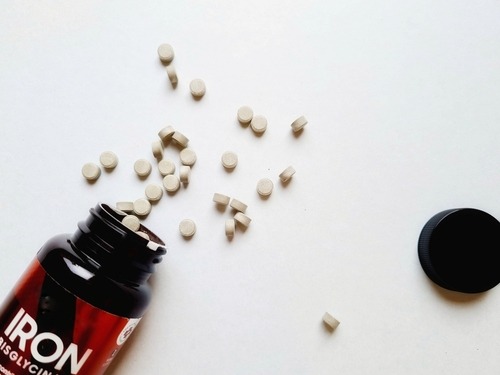Visit Innatefit1.com for exercise wear and equipment!!!
Bean There, Iron That: Debunking Myths About Coffee and Iron Uptake
Discover how coffee affects iron absorption, debunk common myths about coffee and iron, and learn timing and dietary tips to protect your iron levels.
SELF-HELPWOMEN'S HEALTHMEN'S HEALTHHAIR AND SKIN CARENUTRITION AND RECOVERYHEALTH
Joseph Battle
8/4/20255 min read


Morning Mug Mysteries—Unraveling Coffee and Iron Suspicion
Coffee has fueled millions of morning routines, yet it often stands accused of leeching vital minerals from our diets. Among the most persistent claims is that drinking java dramatically lowers iron levels, potentially leading to fatigue, paleness, or iron deficiency anemia. Consequently, questions like, can pregnant women drink coffee with low iron levels swirl across forums and waiting rooms. In this post, we’ll separate hype from evidence, explore how coffee affects iron absorption, and offer actionable advice on sipping smarter.
Many people assume that coffee’s dark hue signals a mineral‐depleting power too strong to resist. Indeed, coffee contains compounds that can bind nutrients. However, scientific nuance reveals that the relationship between coffee and iron is not one‐size‐fits‐all. By examining studies on polyphenols and mineral uptake, we’ll clarify whether you need to swap your latte for water—or adjust timing. Ultimately, our purpose is to equip you with facts rather than fear.
Throughout this article, you’ll learn the truth about coffee’s impact on iron, discover the best time to drink coffee to avoid iron loss, and appreciate how individual genetics, diet, and health conditions—like pregnancy or anemia—shape your personal coffee‐iron equation. Let’s dive in.
Unlocking the Science—How Coffee Affects Iron Absorption
First, it helps to understand that iron comes in two forms in our diet: heme iron (from animal sources) and non-heme iron (from plants and fortified foods). Non-heme iron, which more vegetarians and many omnivores rely on, is less readily absorbed and more susceptible to inhibitors.
Coffee introduces two major inhibitor classes—polyphenols and tannins—that can bind to non-heme iron in the digestive tract, reducing absorption. Polyphenols in coffee and iron uptake form the core mechanism by which your morning brew may interfere with iron levels.
Laboratory and clinical studies quantify this effect. In controlled trials, consuming coffee with a meal can reduce iron absorption by up to 60% compared to water or tea, without the presence of inhibitors. Yet real-world diets are more complex: vitamin C, organic acids, and meat proteins in the same meal can counteract some of coffee’s inhibitory influence.
Thus, while coffee undeniably affects iron uptake, the actual impact on iron levels depends on your entire dietary pattern.
Furthermore, not all coffees are created equal. Dark roasts often have slightly fewer polyphenols than light roasts, though the differences are modest. Brewing methods—such as French press, espresso, and drip—can also impact the concentration of tannins. By choosing your brew wisely and adjusting the timing, you can enjoy your favorite cup without worrying about mineral balance.
Anemia Under the Microscope—Impact of Caffeine on Iron Deficiency Anemia
Iron deficiency anemia occurs when your body doesn’t have enough iron to produce sufficient hemoglobin, leaving you tired, short of breath, and sometimes dizzy. Common causes include inadequate dietary iron, blood loss, or increased demands (as in pregnancy). Coffee is often accused of exacerbating or even causing anemia, but correlation does not equal causation. To what extent does your morning espresso truly deepen an anemic state?
Research indicates that drinking coffee around mealtime can lower non-heme iron absorption; however, it rarely acts as a sole cause of anemia in well-nourished individuals. However, for those at risk—children, pregnant women, or people with existing low Iron levels—excessive coffee intake, especially on an empty stomach, may tip the delicate balance toward deficiency. The Impact of caffeine on iron deficiency anemia thus hinges on both the amount you drink and your individual characteristics.
Practically speaking, individuals already diagnosed with anemia or low ferritin levels should closely track their coffee consumption and iron intake. You don’t need to give up caffeine entirely, but spacing consumption away from iron-rich meals can mitigate risk. Also, consider regular blood tests to monitor iron levels and consult a healthcare professional for personalized management.
Pairing Brews and Bites—Coffee and Iron-Rich Foods
If you love coffee but worry about iron loss, consider strategizing around the best time to drink it to minimize iron loss. Ideally, wait at least one hour before or two hours after an iron‐rich meal before sipping your cup. This window allows your body to absorb non-heme iron unimpeded by polyphenols. For people relying on supplements, the same rule applies: avoid taking iron tablets with coffee.
Meanwhile, boost your dietary Iron levels by prioritizing sources that naturally counter inhibitors. Vitamin-C-rich foods (bell peppers, citrus, strawberries) enhance non-heme iron absorption, while heme iron sources (red meat, poultry, fish) are less sensitive to coffee’s blockers.
Plant-based eaters can lean on legumes, spinach, tofu, and fortified cereals—paired with a squeeze of lemon or a side of tomatoes—to maximize uptake. Creative recipes, such as iron-rich chickpea salads with orange vinaigrette or steak fajitas with pico de gallo, can satisfy both your palate and iron needs.
Also, remember that coffee’s inhibitory effect applies mainly to non-heme iron. If you include even small amounts of meat or seafood in your diet, you can significantly improve your overall Iron levels, despite your daily coffee rituals.
Your Biology, Your Brew—The Role of Individual Factors
Not everyone experiences the same decline in Iron levels when they drink coffee. Genetics, gut health, hormone status, and lifestyle choices all shape individual responses. Some people naturally express more hepcidin, a hormone that regulates iron absorption, making them more or less sensitive to inhibitors like polyphenols. Others may have gut microbiomes that modify polyphenol activity or iron bioavailability.
Lifestyle factors, such as physical activity, can alter iron needs. Endurance athletes often have higher requirements due to increased iron turnover. Pregnancy significantly increases iron demands, prompting the question: Can pregnant women safely drink coffee with low iron levels?
Moderate coffee intake (under 200 mg of caffeine per day) is generally considered safe during pregnancy, but individuals already struggling with anemia should discuss their intake and timing with their healthcare provider.
Personal anecdotes often highlight surprising outcomes: one runner reported normal ferritin levels despite consuming two cups of coffee daily when she paired it with vitamin-C cocktails, while another friend found that her Iron levels rebounded only after cutting pre-workout espresso.
Ultimately, personalized advice from a registered dietitian or doctor ensures you respect both your love for coffee and your unique physiology.
Pouring Wisdom—Practical Takeaways and Conclusion
Recap: coffee and iron interact mainly through polyphenols that hamper non-heme Iron uptake. Studies show that significant inhibition occurs when coffee is consumed with meals, but judicious timing—waiting before or after consuming iron-rich foods—essentially solves the problem. Most healthy adults won’t develop anemia solely from mediation, yet those at risk should adopt preventive strategies.
If you experience low iron levels or anemia, prioritize iron-rich foods, take supplements separately from coffee, and consider vitamin C to enhance absorption. For coffee aficionados, experiment with brew strength, roast type, and the timing of your cup. Remember the best time to drink coffee to avoid iron loss: between meals rather than alongside them.
Finally, stay mindful of your body’s signals. Track energy levels, monitor lab results, and seek professional guidance for personalized recommendations. By blending evidence with personal context, you can enjoy coffee’s aroma and buzz without sacrificing Iron levels. Here’s to informed sipping and robust health!






